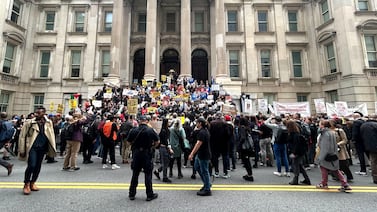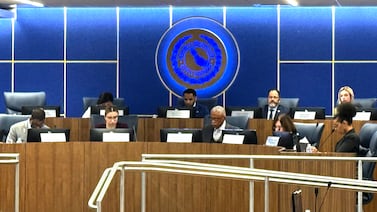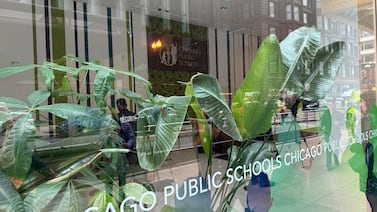Sign up for Chalkbeat Tennessee’s free newsletter to keep up with statewide education policy and Memphis-Shelby County Schools.
The volume of applications for the state’s new universal private school voucher program already outnumbers the total scholarships available.
Within hours of the launch of the Tennessee Education Freedom Scholarship program on May 15, the state received over 33,000 applications, according to a joint press release from Gov. Bill Lee and the state education department.
That’s for 20,000 total spots this upcoming school year. Parents can still submit applications for review. A waitlist will be established, according to the press release.
On social media, some parents expressed frustration over technical issues during the program’s rollout.
Lee called the wave of applications a success.
“This remarkable response demonstrates what we have known all along: Tennessee parents want choices when it comes to their child’s education,” Lee said in a statement.
The governor made enacting private school vouchers a key campaign promise since his first run in 2018. After years of legal challenges and controversy, legislators finally passed the universal program during a special legislative session in January.
This program is the first to apply across all counties and income levels.
Opponents of the voucher program expressed concern about using public funds to support private education.
“This program will function as it does in other states – the vast majority of the vouchers will be awarded to families already attending private schools with virtually no accountability or oversight available to the public,” said Tanya Coats, president of the Tennessee Education Association, the state’s largest professional organization for teachers.
How Tennessee’s private school vouchers work
The first 10,000 scholarships are set aside for families with incomes below 300% of the threshold for students to receive federally subsidized school meals, as well as students who already received vouchers under a previous program and students with certain disabilities.
The remaining vouchers are available to any Tennessee student who is entitled to attend public school and is “lawfully present” in the U.S. This year, state legislators failed to pass a bill that would charge undocumented students tuition to attend public school.
The income cap will drop after this school year. The law also allows the program to grow by 5,000 students annually, based on interest and funding.
Each scholarship amounts to $7,295. The average annual cost of private school tuition is $11,886 in Tennessee, according to an analysis by Private School Review.
So far, more than 200 schools have signaled they will accept vouchers, according to the Tennessee Department of Education. A list can be found at tn.gov/education/EFS under the “Registered EFS Schools” tab.
Will most vouchers fund students already in private school?
One major question is how many public school students will switch to private schools through this voucher program. The state projected that 65% of vouchers would go to students who already attend private schools.
Another question is the total cost. The program will cost at least $1.1 billion over the next five years, according to a state analysis.
Whether Tennesseans will view the program as a success or failure is also uncertain. Polls show voters have split opinions about vouchers.
Supporters and opponents will also watch closely for academic outcome data. After much debate over how the program should handle testing, scholarship recipients in grades 3-11 must take a nationally standardized achievement test or the TCAP test for math and language arts. Private schools must report this date to the Office of Research and Accountability.





